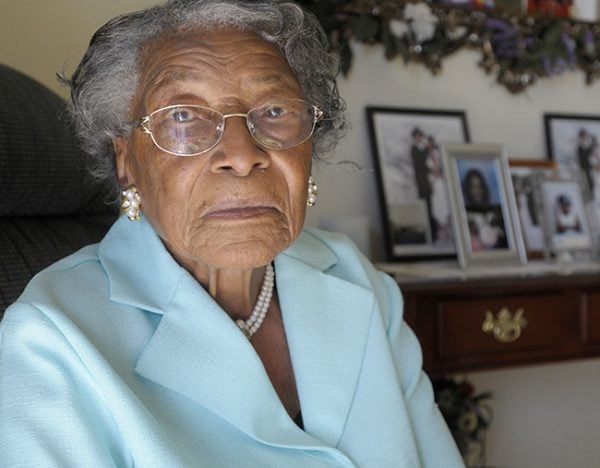There were pine needles in her hair and she was certain she would die. Recy Taylor was raped by six men in a grove of pine trees on September, 3, 1944.
She was kidnapped, threatened with a gun, battered and raped repeatedly and, despite the men later confessing, they were never convicted for their crimes.
Why? Because the men were white and Taylor was black.
During her speech at Sunday night’s Golden Globe Awards, talk show host and media mogul Oprah Winfrey paid tribute to Taylor who died two weeks ago, aged 97.
“The men threatened to kill Taylor if she ever told anyone, but her story was reported and a young worker by the name of Rosa Parks became the lead investigator on her case and together they sought justice,” Winfrey told the audience.
“But justice wasn’t an option in the era of Jim Crow. The men who tried to destroy her were never persecuted. Recy Taylor lived as we all have lived, too many years in a culture broken by brutally powerful men.”
Winfrey told the story to demonstrate the long history of women’s persecution. To show many women have suffered without justice to bring us into the current moment, in which victims of sexual assault are speaking out under the banner of #MeToo. Her words added depth and power to the movement and her message was clear: Time is up.
As we move forward we must remember those who came before. For they are the ones who made today’s hopefulness possible.

